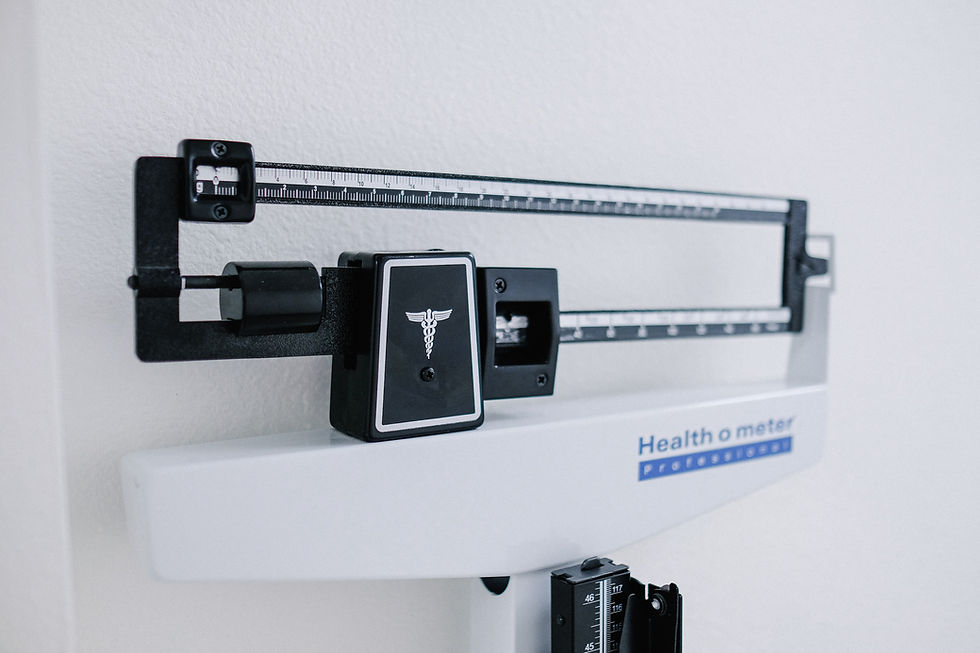
BMI vs Body Composition. “More than half of Americans with a normal BMI actually have a high body fat percentage.” Surprised? You should be. BMI (Body Mass Index) has long been the go-to measure for doctors to assess weight-related health risks like heart disease and diabetes. But here’s the thing—it doesn’t tell the whole story.
BMI is a quick, no-fuss calculation based on height and weight. Plug in the numbers, and bam—you’re labeled as underweight, normal, overweight, or obese. It's easy and accessible. But it doesn’t distinguish between fat and muscle. So, if you’re highly muscular or have a hidden layer of fat, BMI alone can give you the wrong idea about your health. This is where body composition comes in, offering a much clearer view of what’s really going on beneath the surface.
The Problem with BMI
BMI is a popular tool, but it's not flawless. It’s useful for population-wide studies and quick assessments, but it can lead to misclassifications. For instance, someone with a BMI of 30 or above is labeled "obese." But if you're an athlete or someone with significant muscle mass, that label could be way off. Muscle weighs the same as fat, but BMI doesn't know that.
On the flip side, there are people who look slim according to BMI but are actually carrying dangerous levels of fat around their organs—known as "normal weight obesity." This hidden risk won’t show up on the BMI chart, but it could have serious consequences for your health.
The Clearer Picture: Body Composition
Now, body composition? That's where the magic happens. Instead of lumping muscle and fat into one number, body composition measures the ratio of fat to lean mass (muscle, bone, water). It gives you a precise breakdown of how much of your body is muscle and how much is fat.
Imagine this: two people weigh the same. One is 25% body fat, the other is 15%. Their BMI could be identical, but their health risks? Completely different. That’s the power of body composition—it reveals the full picture.
Here’s the actionable part: If you want to know how healthy you really are, especially if you're working out regularly, get your body composition checked. It’s the only way to know if you’re losing fat, building muscle, or just moving the scale without real progress.
How to Measure Body Composition
There are several ways to get your body composition analyzed. Some of the best options include:
DEXA scan: This is one of the most accurate methods, but it’s pricey and typically requires a visit to a medical facility.
Hydrostatic weighing: The "gold standard," but it’s not always convenient or accessible.
Bioelectrical impedance scales: More affordable and often available in gyms or for home use. However, their accuracy can vary depending on hydration and other factors.
Skinfold measurements: A practical option used by trainers, though it requires skill for reliable results.
If you’re serious about understanding your fitness, schedule a DEXA scan or use bioelectrical impedance regularly. Tracking these numbers gives you a far better idea of your progress than relying on weight or BMI alone.
Why You Should Care
You might be wondering, "Why bother with all this if BMI is fine for most people?" Because health isn’t just about being fine. It’s about thriving. Understanding your body composition can help you set realistic goals—whether you're trying to lose fat, build muscle, or simply improve your overall health. Plus, it helps you avoid the frustration of stepping on the scale and seeing a number that doesn’t reflect your hard work in the gym.
Want to live longer? Want to prevent chronic diseases like diabetes, stroke, or heart disease? Body composition tells you if you’re on the right track. It’s not about chasing a number on the scale; it’s about chasing a healthy, balanced body.
The Bottom Line: BMI vs Body Composition
While BMI is a convenient starting point, it’s just that—a start. If you’re serious about your health and fitness, it’s time to focus on body composition. Get tested, track your progress, and make decisions based on what’s really happening inside your body. You deserve more than a number that doesn’t tell the whole story.
Ready to take control of your health? Start with a body composition test today! Whether you're at the gym or visiting a healthcare provider, this is the first step toward real, lasting change.
Your health isn’t a number—make sure you’re measuring it the right way!
Comments